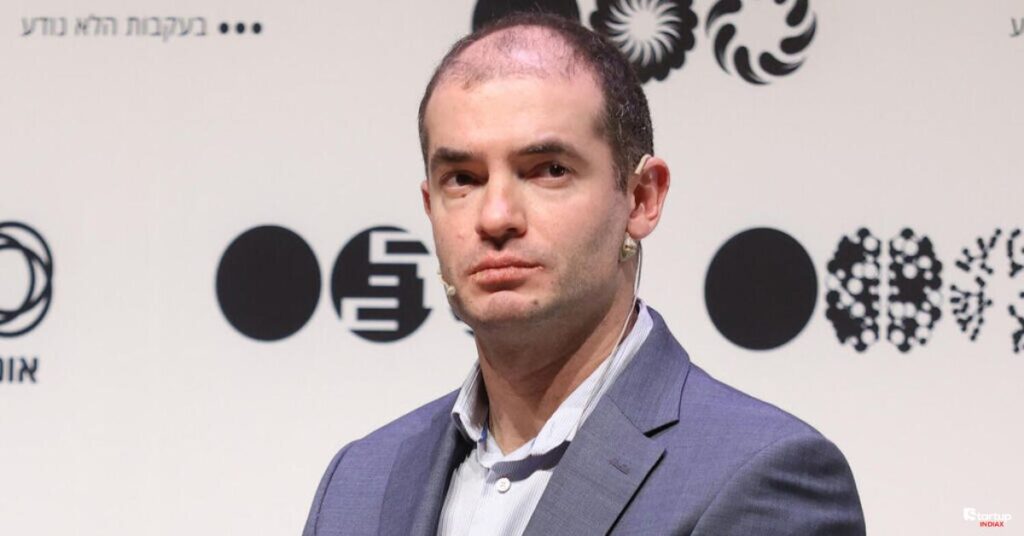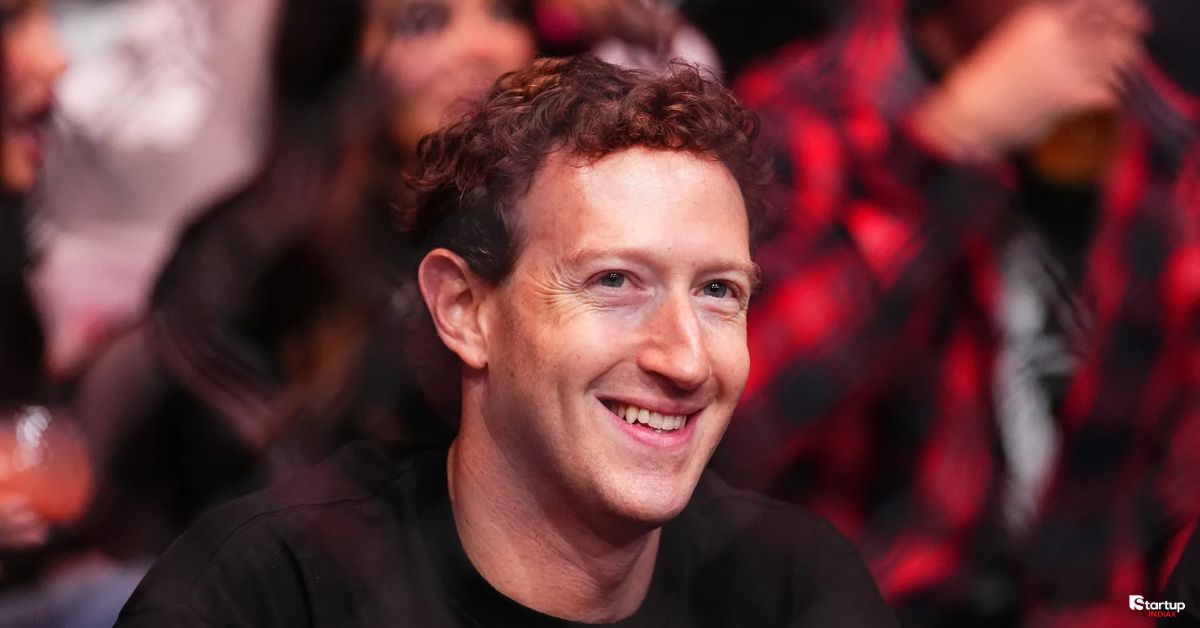AI startup acquisition attempts are heating up, and Meta’s failed bid to buy Safe Superintelligence, a $32 billion AI startup, is making waves. Founded by ex-OpenAI chief scientist Ilya Sutskever, Safe Superintelligence turned down Meta’s offer, prompting the tech giant to pivot and hire its CEO, Daniel Gross, and former GitHub CEO Nat Friedman. Published by Startup INDIAX, this article dives into why the deal fell apart, Meta’s new talent-focused strategy, and what it means for the AI industry. Learn how regulatory hurdles, competitive pressures, and the race for AI supremacy are shaping the future of tech innovation.
Table of Contents
What Is Safe Superintelligence, and Why Did Meta Want It?
Safe Superintelligence (SSI) is a rising star in the AI world, focused on building safe and interpretable AI systems that rival human intelligence. Launched in 2024, SSI quickly gained attention for its ambitious mission and high-profile founders, attracting a $32 billion valuation in a fundraising round by April 2025. Startup INDIAX highlights SSI as a key player in the race toward artificial general intelligence (AGI).
Meta’s interest in SSI stemmed from its need to catch up with AI leaders like OpenAI, Google, and Anthropic. With its Llama 4 models underperforming and its Fundamental AI Research (FAIR) unit losing ground, Meta saw SSI as a way to leapfrog competitors. “Meta is desperate to close the gap in AI innovation,” said Vahan Petrosyan, CEO of SuperAnnotate, a data annotation firm. SSI’s expertise in safe AI aligned with Meta’s goal to integrate advanced AI into its platforms, from chatbots to augmented reality.

OpenAI’s former chief scientist – Ilya Sutskever
Who Founded Safe Superintelligence?
SSI was co-founded by Ilya Sutskever, OpenAI’s former chief scientist, known for his contributions to ChatGPT’s underlying tech. Sutskever left OpenAI in 2024 to focus on AI safety, joined by Daniel Gross, a former Meta AI researcher and Y Combinator alum, as CEO. Their vision of building AI that prioritizes safety over speed made SSI a unique target for acquisition.
Why Was Safe Superintelligence Valued at $32 Billion?
SSI’s $32 billion valuation reflects the AI industry’s skyrocketing demand for cutting-edge tech and talent. According to CNBC, SSI raised significant capital in April 2025, fueled by investor confidence in its founders and mission. The startup’s focus on AGI and safety protocols positioned it as a potential game-changer, drawing Meta’s attention.
Why Did Meta’s AI Startup Acquisition Attempt Fail?
Meta’s attempt to acquire Safe Superintelligence fell through due to a mix of strategic and regulatory roadblocks. Ilya Sutskever’s refusal to sell was a major factor, as he prioritized SSI’s independent mission. Additionally, Meta’s ongoing antitrust scrutiny made a full acquisition risky.
What Role Did Ilya Sutskever Play in the Decision?
Sutskever, SSI’s visionary co-founder, rebuffed Meta’s offer to preserve SSI’s focus on safe AI development. Sources told CNBC that Sutskever also declined a personal offer to join Meta, signaling his commitment to SSI’s independence. His decision underscores a growing trend among AI founders to resist Big Tech buyouts.
How Did Regulatory Concerns Impact the Deal?
Meta is currently facing an antitrust trial with the Federal Trade Commission (FTC) over its acquisitions of Instagram and WhatsApp. A $32 billion deal for SSI would likely have drawn intense scrutiny from regulators, especially under the Biden administration’s tough stance on Big Tech mergers. To avoid further regulatory heat, Meta shifted to a talent acquisition strategy, mirroring moves by Google and Microsoft with startups like Character.AI and Inflection AI.
What Is Meta’s New Strategy After the Failed Acquisition?
Unable to buy SSI, Meta pivoted to hiring its CEO, Daniel Gross, and former GitHub CEO Nat Friedman, to bolster its AI team. This move is part of Mark Zuckerberg’s aggressive talent acquisition spree, aimed at building a “superintelligence lab” to compete with OpenAI and Google.
Who Is Daniel Gross, and Why Is Meta Hiring Him?
Daniel Gross is a tech prodigy who worked at Meta’s AI division before joining Y Combinator and co-founding SSI. His expertise in AI and venture capital makes him a valuable asset for Meta’s struggling AI efforts. Sources say Zuckerberg sees Gross as key to turning around Meta’s Llama models and advancing its AGI ambitions.
How Does Nat Friedman Fit Into Meta’s AI Plans?
Nat Friedman, former CEO of GitHub, brings a wealth of experience in open-source software and tech leadership. Alongside Gross, Friedman runs a venture capital firm, NFDG, which Meta is reportedly taking a stake in. His hiring signals Meta’s intent to blend business acumen with technical expertise to rival OpenAI’s consumer-focused AI products.
How Does This Move Compare to Meta’s Scale AI Investment?
Meta’s SSI hiring spree follows its $14.3 billion investment in Scale AI, a data-labeling startup, in June 2025. Both moves highlight Meta’s focus on acquiring top talent to strengthen its AI capabilities.
What Is Scale AI, and How Did Meta Invest?
Scale AI, founded by Alexandr Wang, provides high-quality labeled data to train AI models for clients like OpenAI and Google. Meta invested $14.3 billion for a 49% stake in Scale AI, bringing Wang and key engineers to lead its new superintelligence lab. The deal valued Scale AI at $29 billion, doubling its valuation from 2024.
Why Is Meta Focusing on Talent Acquisition?
Meta’s shift to talent acquisition reflects the scarcity of elite AI experts. “When Meta hires someone like Gross or Wang, they’re buying their intelligence,” said Petrosyan. With SSI’s acquisition blocked, hiring its leaders allows Meta to gain expertise without triggering regulatory alarms. This strategy also helps Meta stay competitive in the “AI talent wars,” where signing bonuses can reach $100 million.
What Does This Mean for the AI Industry?
Meta’s failed SSI acquisition and subsequent hiring spree signal a new phase in the AI race, where talent is as valuable as technology. The move has ripple effects for competitors, startups, and the broader tech ecosystem.
How Are Competitors Like OpenAI Responding?
OpenAI CEO Sam Altman noted Meta’s aggressive hiring tactics, claiming Meta offered $100 million signing bonuses to lure OpenAI staff, though none accepted. Altman’s comments highlight the intensifying competition, with OpenAI itself spending $6.5 billion to hire Jony Ive for its device startup.
What Are the Implications for AI Talent Wars?
The AI talent wars are escalating, with Big Tech firms like Meta, Google, and Microsoft vying for top minds. According to Reuters, AI startups like Scale AI and SSI are breeding grounds for talent, making them prime targets for acqui-hires. This trend could limit opportunities for smaller startups to scale independently, as their leaders are poached by tech giants.
Conclusion: What’s Next for Meta and AI Startups?
Meta’s failed bid for Safe Superintelligence and its pivot to hiring Daniel Gross and Nat Friedman underscore the high stakes in the AI race. As Startup INDIAX continues to cover Indian and global tech trends, we see Meta doubling down on talent to close the gap with OpenAI and Google. For entrepreneurs and startup founders, this saga offers a lesson: top talent is the ultimate currency in tech. Share your thoughts in the comments, or explore more startup stories on Startup INDIAX to stay ahead of the curve.
FAQs
What is Safe Superintelligence?
Safe Superintelligence (SSI) is an AI startup founded in 2024 by Ilya Sutskever, focusing on safe and interpretable AI systems. It was valued at $32 billion in April 2025.
Why did Meta want to acquire Safe Superintelligence?
Meta aimed to boost its AI capabilities to compete with OpenAI and Google, leveraging SSI’s expertise in safe AI and AGI.
Why did the acquisition fail?
Ilya Sutskever rejected Meta’s offer to maintain SSI’s independence, and regulatory concerns over Meta’s antitrust issues played a role.
Who is Daniel Gross, and why is Meta hiring him?
Daniel Gross is SSI’s CEO and a former Meta AI researcher. Meta hired him to lead its AI efforts and advance its superintelligence lab.
How does Meta’s Scale AI investment relate to this?
Meta invested $14.3 billion in Scale AI to acquire talent like Alexandr Wang, mirroring its strategy with SSI to strengthen its AI team.

